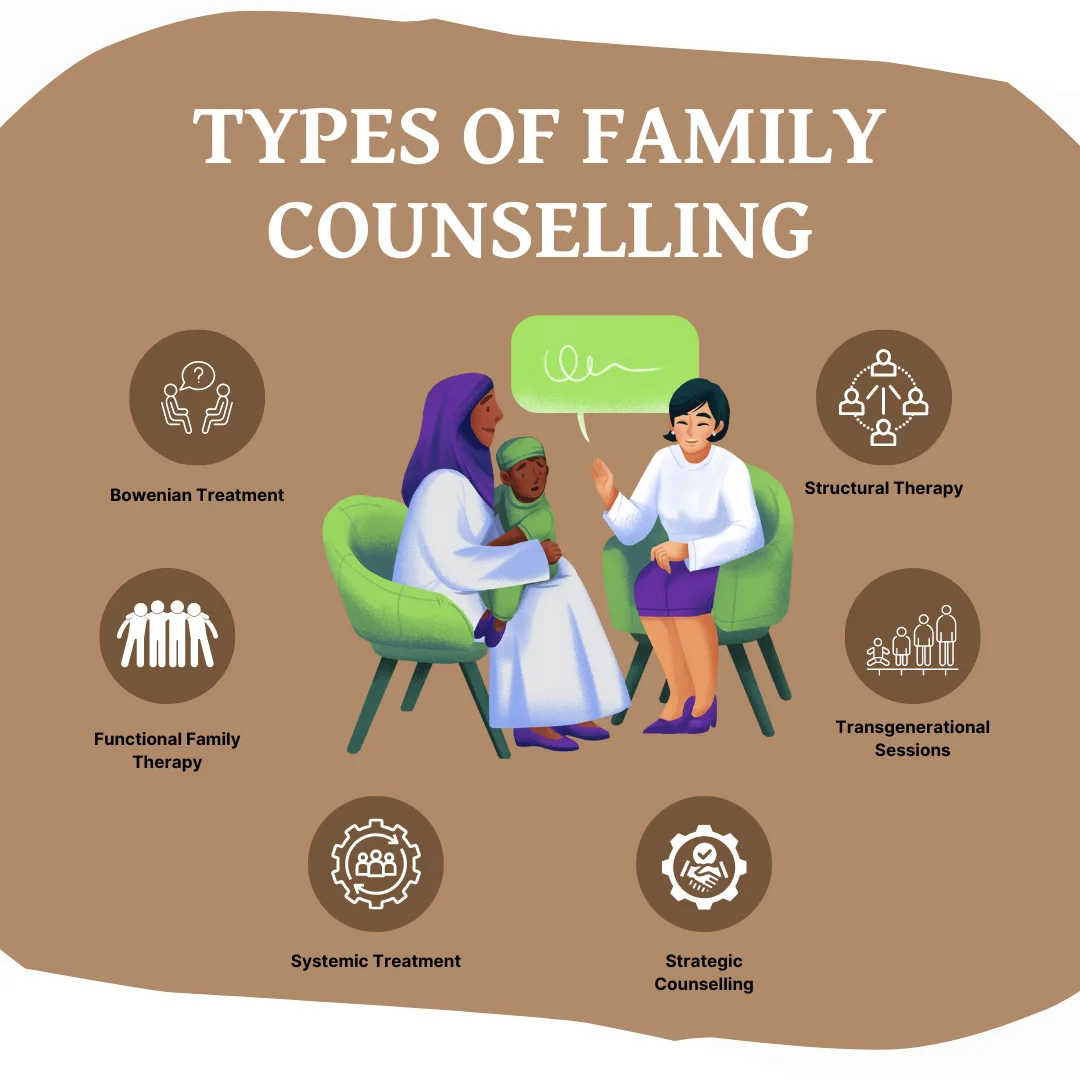A Comprehensive Guide to the Numerous Types of Coaching and Their Influence
Counseling includes a range of therapeutic techniques, each developed to meet distinct mental health demands. From the structured methods of Cognitive-Behavioral Treatment to the compassionate nature of Person-Centered Treatment, these modalities provide distinct paths to personal development. Family members treatment and Dialectical Behavior modification offer additional frameworks for healing, while team counseling fosters community assistance. Recognizing these varied approaches can illuminate their profound influence on private health. What continues to be to be checked out are the details of each approach.

Recognizing Cognitive-Behavioral Therapy (CBT)
Although numerous therapeutic approaches exist, Cognitive-Behavioral Therapy (CBT) stands out as a result of its structured, goal-oriented nature. This form of therapy is based upon the facility that ideas, sensations, and habits are adjoined, and by transforming adverse idea patterns, people can modify their psychological reactions and activities. CBT uses different strategies, such as cognitive restructuring, which helps clients determine and challenge altered beliefs. Behavioral activation motivates involvement in enjoyable activities to combat clinical depression.
Typically, CBT is a temporary therapy, commonly long-term between 12 to 20 sessions, making it obtainable for those seeking fast outcomes. Its effectiveness has actually been well-documented in dealing with anxiety conditions, clinical depression, and various other psychological health and wellness problems. The therapist's role is to lead clients with workouts and research projects, fostering self-awareness and promoting long-term coping strategies. This practical approach encourages people to take control of their mental well-being, ultimately leading to enhanced life complete satisfaction.
Discovering Person-Centered Therapy
Person-Centered Treatment, developed by Carl Rogers, uses a different strategy to Cognitive-Behavioral Treatment by highlighting the client's subjective experience. This therapeutic version focuses on the person's perspective, promoting a setting of compassion, genuine positive respect, and authenticity. By allowing customers to discover their sensations and ideas without judgment, specialists promote individual development and self-discovery.
The core tenet of Person-Centered Treatment is the idea that people possess the fundamental ability for self-healing and personal development. In this setting, the therapist acts as a supportive overview instead of a directive authority, motivating customers to take charge of their own trip. This approach is especially effective for those grappling with problems such as low self-worth, anxiousness, or clinical depression, as it equips them to face and comprehend their emotions. Ultimately, Person-Centered Treatment grows a strong therapeutic alliance, fostering trust and visibility necessary for significant change.
The Role of Family Therapy in Recovery
Family members treatment functions as an important element in the recovery procedure for people and their connections. This restorative method concentrates on boosting communication, dealing with conflicts, and promoting much deeper links amongst member of the family. By attending to inefficient dynamics, household therapy urges each member to express their ideas and sensations in a risk-free environment, promoting understanding and compassion.

The impact of family treatment prolongs beyond the sessions, as enhanced partnerships can result in boosted psychological health for all involved. In general, family members treatment plays a vital role in recovery by fostering unity, resilience, and common support amongst family members, inevitably leading them towards a much healthier, a lot more meeting life together.
Unloading Dialectical Behavior Modification (DBT)
Building on the foundation of healing approaches that improve emotional health, Dialectical Behavior modification (DBT) offers an organized framework for people battling with intense feelings and behavioral difficulties. Developed by Marsha Linehan, DBT incorporates cognitive-behavioral strategies with mindfulness techniques, intending to assist clients handle frustrating feelings and improve social performance.
The therapy is particularly useful for those identified with Borderline Personality Condition yet is additionally suitable to a variety of other psychological health concerns. adhd counselling. DBT contains private therapy sessions and abilities training groups, concentrating on 4 key ability sets: mindfulness, distress resistance, emotion policy, and social effectiveness
The Benefits of Team Therapy Procedure
While private therapy offers useful understandings, group counseling sessions use special benefits that can significantly improve the healing experience. One essential benefit is the feeling of area that emerges among participants. Individuals often find convenience in sharing their experiences with others facing similar difficulties, promoting an encouraging setting that decreases sensations of seclusion.
Team sessions encourage varied point of views, permitting individuals to learn from each various other's coping strategies and understandings. This collective wisdom can lead to boosted analytic capabilities and a wider understanding of individual concerns.
In addition, group therapy usually advertises responsibility, as participants inspire one an additional to pursue their objectives and stick to their commitments. The cost-effectiveness of group treatment makes it an available option for several people seeking assistance. Overall, the collaborative nature of team counseling sessions can considerably enhance the healing trip.
Regularly Asked Questions
What Credentials Do Specialists Need to Exercise Therapy?
Specialists generally call for an appropriate level in psychology or therapy, in addition to monitored scientific experience. Additionally, they should obtain proper licensure or accreditation to practice legally, ensuring adherence to professional requirements and honest standards.
Just how Do I Select the Right Kind of Therapy for Me?
Selecting the ideal sort of treatment entails reviewing individual needs, checking out various approaches, considering specialist specialties, and looking for referrals. Comprehending individual objectives and preferences can here significantly boost the performance and satisfaction of the restorative experience.

Are Online Counseling Procedure as Effective as In-Person Ones?
The performance of online counseling sessions contrasted to in-person ones often depends on private preferences and circumstances. Research indicates that both approaches can produce favorable results, though some may locate better comfort in face-to-face interactions.
For How Long Does Counseling Typically Last?

What Should I Anticipate Throughout My First Therapy Session?
Throughout the first therapy session, clients can expect an introduction, conversation of their concerns, facility of goals, and a summary of the counseling process - relationship therapy. This initial meeting intends to develop relationship and assurance comfort